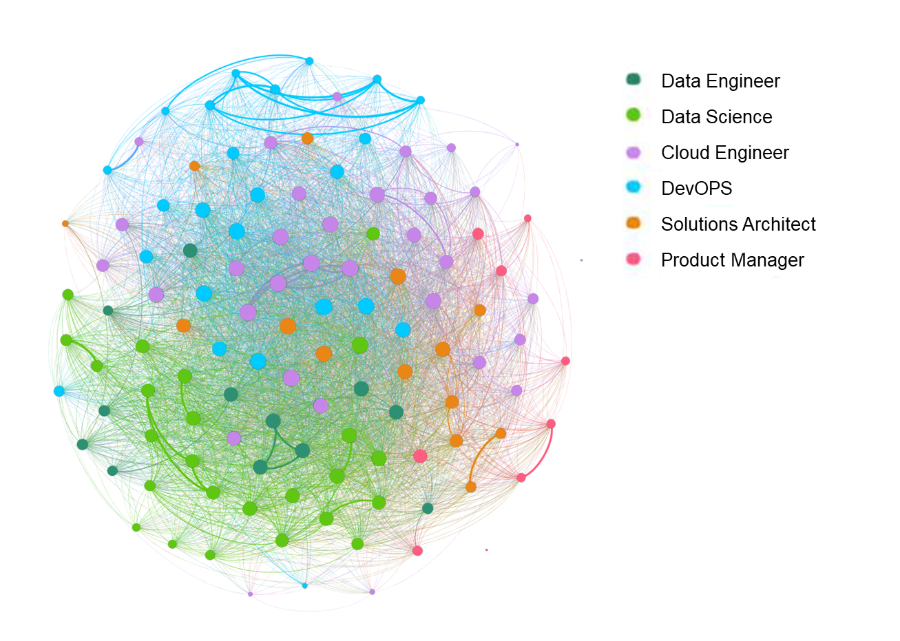Abstract
Job-skills mismatch causes a disconnect in the job market, making it more difficult for employers to find the right applicants, while fresh graduates can be ill-equipped for the industry. By creating a bipartite network of jobs and skills, we identified jobs that provide the best chance of transitioning to other high-paying jobs, gaps on job-skill requirements, and essential skills to learn. Our study, which focused on the IT job market, provides a more comprehensive analysis compared to existing works that only explored skill co-occurrence networks. Our findings revealed that IT jobs are well interconnected, suggesting skills are highly transferrable across different fields. Data engineering provides employees the best opportunity to transition to other high-paying IT jobs.
Our analysis also showed that essential skills to learn are a mix of job-specific technical skills and business/management skills. This highlights the importance of being equipped with both business and technical skills to land high IT paying jobs. Moreover, the skills network had an average path length of two, indicating that individuals must only learn around two extra skills to open their job opportunities to different fields. Lastly, we have uncovered some disconnects regarding job requirements in the same field.
This may stem from a lack of understanding of the actual job definition by the job employers. Job seekers can use this network to plan out new skills to learn to take their career in the desired direction, while educational institutions, both private and public, can improve their programs to match industry needs.



